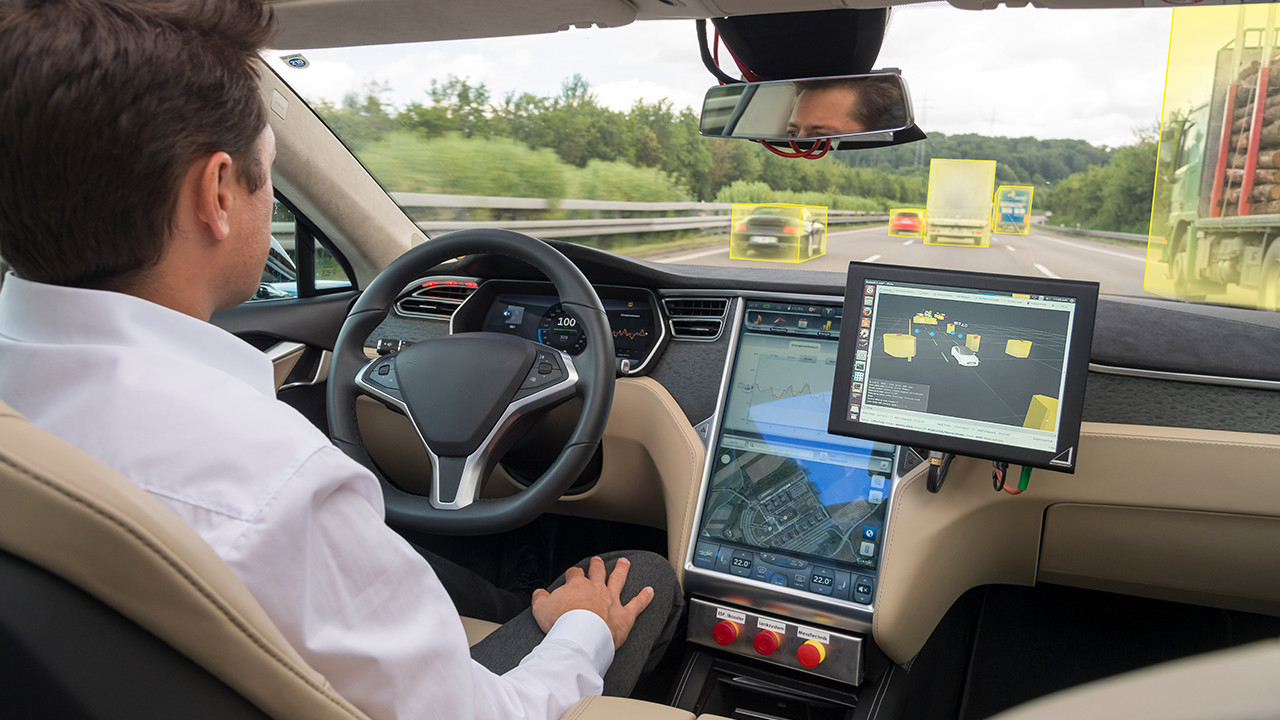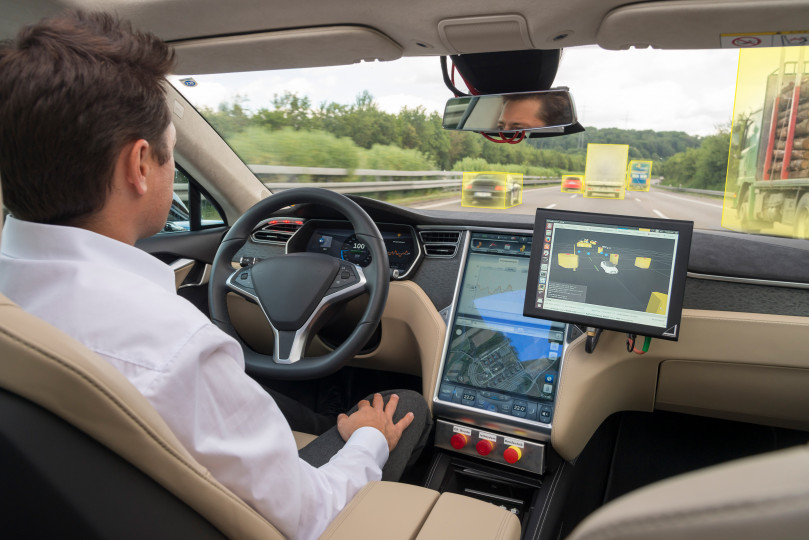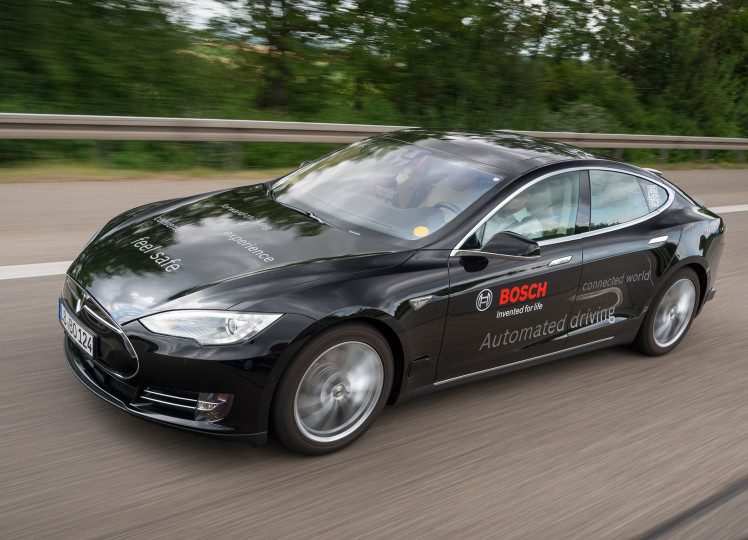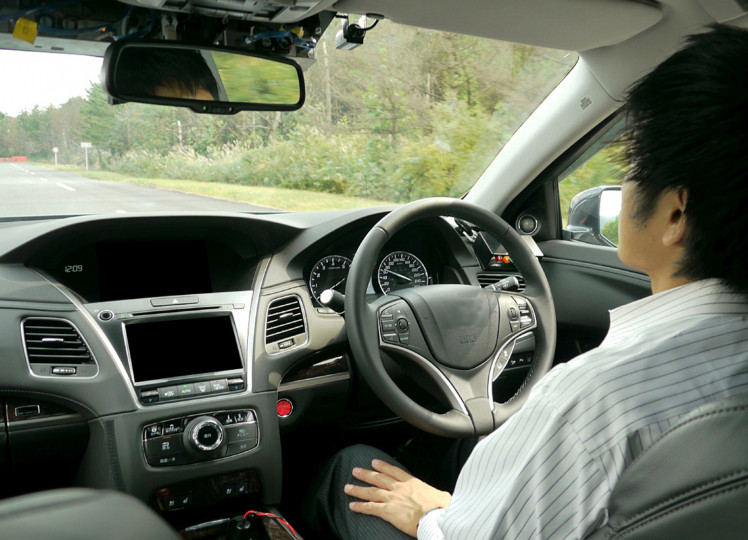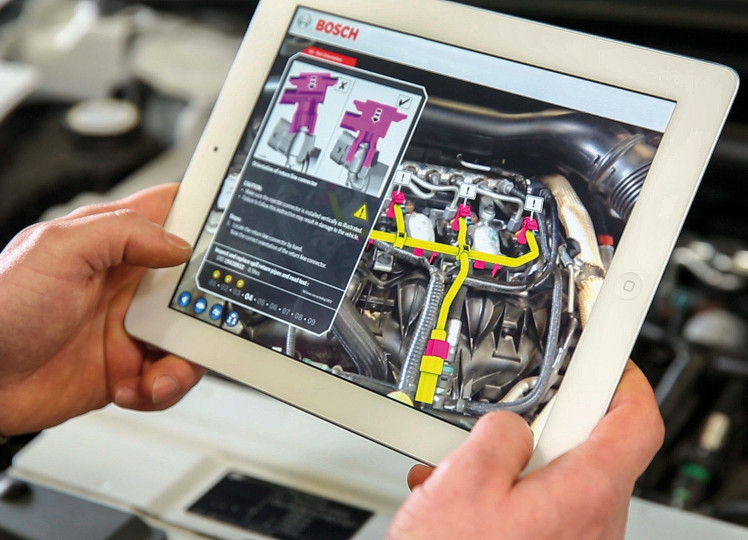Berlin – Bosch is creating the brain for the self-driving cars of the future. At the international Bosch ConnectedWorld 2017 conference in Berlin, the supplier of technology and services presented an onboard computer for automated vehicles. Thanks to artificial intelligence (AI), the computer can apply machine learning methods. The AI onboard computer is expected to guide self-driving cars through even complex traffic situations, or ones that are new to the car. “We are teaching the car how to maneuver through road traffic by itself,” said Dr. Volkmar Denner, chairman of the Bosch board of management, at the international industry conference on the internet of things. Cars already use Bosch sensors to monitor their surroundings. Using artificial intelligence, it will also be able to interpret those readings to make predictions about the behavior of other road users. “Automated driving makes roads safer, and artificial intelligence is the key to making that happen. We are making the car smart,” continued the Bosch CEO. For building the core onboard computer, Bosch plans to collaborate with U.S. technology company Nvidia. Nvidia will supply Bosch with a chip that stores algorithms, generated with machine learning methods. The AI onboard computer is expected to go into production by the beginning of the next decade at the latest.
Driverless cars to be part of everyday life in the next decade
Bosch’s AI onboard computer can recognize pedestrians or cyclists. Besides this ability, known as object recognition, artificial intelligence also makes it easier for automated vehicles to assess a situation. For instance, cars that have their turn signals on are more likely to change lanes than those that do not. As a result, a self-driving car with AI can recognize and assess complex traffic situations, such as when an oncoming vehicle executes a turn, and factor these into its own driving. The computer stores whatever it learns while driving in artificial neural networks. Experts review this knowledge in the lab for accuracy. Following further testing on the road, the artificially generated knowledge structures can be transmitted to any number of other AI onboard computers in an update. “We want automated driving to be possible in every situation. As early as the next decade, driverless cars will be also a part of everyday life. Bosch is advancing automated driving on all technological fronts. We aim to assume a leading role in the field of artificial intelligence, too,” said Denner. He went on to say that artificial intelligence would play a key role in all areas of business at Bosch, not just mobility: “Just ten years from now, it will be virtually impossible to conceive of a Bosch product that does not involve artificial intelligence in some way. The products will either have it or be created with its help.” At the beginning of this year, the company announced it was establishing a Center for Artificial Intelligence. Bosch is investing some 300 million euros in expanding its expertise in this area.
Secure data sharing and ownership over the internet
In his opening address at Bosch ConnectedWorld 2017 before an audience of some 2,700 attendees, Denner named further innovative technologies that will open up new areas of business for Bosch. Besides artificial intelligence and the cloud, one of these is “blockchain” technology. This allows consumers to securely share data online without involving a third party. They can conclude agreements and contracts online and securely transact payments, and the technology ensures the data is anonymized. A blockchain is based on a kind of decentralized database, which distributes information entered into it across thousands of computers. This makes it impossible to falsify the data, and consumers are less dependent on one single computing center.
Bosch and TÜV collaborate to fight odometer fraud
Denner highlighted one practical use for a blockchain with a live demonstration in cooperation with German certification authority TÜV Rheinland. It promises to put an end to the widespread practice of odometer fraud. In Germany alone, manipulated odometers in vehicles cause some six billion euros in damage. The idea is to combat this fraudulent practice with a digital logbook distributed across many computers. Cars regularly send their odometer readings to these computers via a simple connector. With a smartphone app, car owners can check the actual mileage at any time and compare it to the in-vehicle display. Should they wish to sell their car, they can have a certificate issued that attests to the accuracy of the car’s mileage. It is also possible to share this certificate over the internet; for example, on an online platform for selling cars.
Bosch is connecting the car with the repair shop
Artificial intelligence, the cloud, and blockchains – how are solutions with intelligently connected Bosch technology changing our day-to-day lives? Denner answers this question with an example: say a stone flies through the air and cracks the car’s side window. The repair shop receives an automatic notification via the cloud and can prepare to make the necessary repairs. Connected logistics and connected forklifts mean that the replacement part is ready and waiting when the customer arrives. Donning a pair of augmented reality glasses that display instructions, the mechanic can carry out the work much more easily and quickly than otherwise. The benefit for drivers is that they can get back in their car and drive off after just a brief wait, with no need to come back to pick it up the next day and no need for a costly alternative in the meantime.
Some 2,700 attendees and 130 speakers
Now in its fourth year, Bosch ConnectedWorld 2017 is taking place in Berlin from March 15 to 16. The industry event, held at STATION-Berlin, is one of the world’s largest conferences on the internet of things. Different areas of industry will present examples of the benefits connectivity will deliver. Some 2,700 developers, representatives of the business community, and journalists are attending the conference this year. Besides Bosch CEO Dr. Volkmar Denner, the list of around 130 speakers includes Timotheus Höttges (CEO of Deutsche Telekom), Edzard Overbeek (CEO of HERE), and Dr. Jen-Hsun Huang (CEO of Nvidia). At the event’s hackathon, around 500 programmers, start-up employees, and designers come together to share their experience and ideas about connected mobility, connected industry, and connected buildings. At the accompanying exhibition, visitors can experience innovative connectivity solutions presented by more than 80 exhibitors.
Mónika Hack
+36 70 510 5516
The Bosch Group is a leading global supplier of technology and services. It employs roughly 390,000 associates worldwide (as of December 31, 2016). According to preliminary figures, the company generated sales of 73.1 billion euros in 2016. Its operations are divided into four business sectors: Mobility Solutions, Industrial Technology, Consumer Goods, and Energy and Building Technology. As a leading IoT company, Bosch offers innovative solutions for smart homes, smart cities, connected mobility, and connected industry. It uses its expertise in sensor technology, software, and services, as well as its own IoT cloud, to offer its customers connected, cross-domain solutions from a single source. The Bosch Group’s strategic objective is to deliver innovations for a connected life. Bosch improves quality of life worldwide with products and services that are innovative and spark enthusiasm. In short, Bosch creates technology that is “Invented for life.” The Bosch Group comprises Robert Bosch GmbH and its roughly 450 subsidiaries and regional companies in some 60 countries. Including sales and service partners, Bosch’s global manufacturing, engineering, and sales network covers nearly every country in the world. The basis for the company’s future growth is its innovative strength. At 120 locations across the globe, Bosch employs 59,000 associates in research and development.
The company was set up in Stuttgart in 1886 by Robert Bosch (1861-1942) as “Workshop for Precision Mechanics and Electrical Engineering.” The special ownership structure of Robert Bosch GmbH guarantees the entrepreneurial freedom of the Bosch Group, making it possible for the company to plan over the long term and to undertake significant up-front investments in the safeguarding of its future. Ninety-two percent of the share capital of Robert Bosch GmbH is held by Robert Bosch Stiftung GmbH, a charitable foundation. The majority of voting rights are held by Robert Bosch Industrietreuhand KG, an industrial trust. The entrepreneurial ownership functions are carried out by the trust. The remaining shares are held by the Bosch family and by Robert Bosch GmbH.
Additional information is available online at www.bosch.com, www.iot.bosch.com, www.bosch-press.com, www.twitter.com/BoschPresse.

